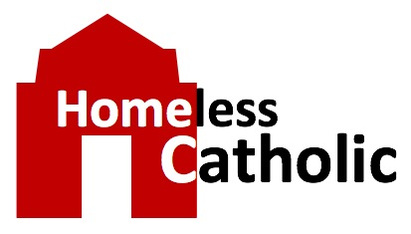It is what it is!
I don’t know why the phrase, common as it is, came to my awareness while considering the Scriptures for the day; but it did bring to mind how things might have been different if King David, having noted that "Here I am living in a house of cedar, while the ark of God dwells in a tent!" had concluded: "It is what it is!"
Similarly, in my bizarre and quirky tendency to imagine the unimaginable, I picture God observing the events on earth and noting that there’s still a basketful of dysfunctional people, there’s still an abundance of suffering, there’s still plenty of sorrow, there’s still oodles of sinful behavior, and then casually commenting: “Well, it is what it is!”
Reflection - It is . . .
.
http://www.usccb.org/bible/readings/122418.cfm
2 Samuel 7:1-5, 8-12, 14, 16
Luke1:67-79
It’s Christmas week. The Scriptures for December twenty-fourth are not specifically about the birth of Jesus; rather, on this day preceding the celebration, they are still texts about the promise of a savior. In fact, Luke’s text fairly quivers with the excitement of a child on Christmas Eve. But even in this season — or maybe especially in this season — it is easy to succumb to a sense of desolation that is most commonly expressed in the barren, vacuous statement: It is what it is.
The phrase may assume the guise of being nothing more than a comment on the obvious. Underneath, however, it has the potential to carry a more ominous meaning: It will be what it is. - It ain’t gonna change, so deal with it — or don’t. The phrase suggests a resignation to complexity and ambiguity as when used to reflect on the deadlock in Congress. It may also suggest an acceptance of limitations as when used by a parent to describe the situation of a child who has succumbed to some addiction. The saying is also heard as an explanation or justification for both action and inaction, misfortune and blessing, success and failure. But in doing so it abdicates responsibility, shuts down creative problem solving, and concedes defeat.
I don’t know why the phrase, common as it is, came to my awareness while considering the Scriptures for the day; but it did bring to mind how things might have been different if King David, having noted that "Here I am living in a house of cedar, while the ark of God dwells in a tent!" had concluded: It is what it is! Similarly, in my bizarre and quirky tendency to imagine the unimaginable, I picture God observing the events on earth and noting that there’s still a basketful of dysfunctional people, there’s still an abundance of suffering, there’s still plenty of sorrow, there’s still oodles of sinful behavior, and then casually commenting: “Well, it is what it is!”
David did not resort to such resignation.
God did not concede defeat.
G. K. Chesterton observed that “Pessimism is not in being tired of evil, but in being tired of good. Despair does not lie in being weary of suffering, but in being weary of joy.” The philosophy of “It is what it is” probably belongs in the same category as the pessimism and despair that Chesterton spoke of, for it is when we tire of trying to bring peace and justice into our world that we can succumb to the pessimism of “It is what it is.” It is when we weary of pursuing joy for ourselves and others that “It is what it is” becomes a delusional, though seemingly realistic escape.
Every child is the fulfillment of promise, nine months of promise that humanity has survived its follies for at least one more year. Promise that our existence as a species will continue. Promise that simplicity and joy and innocence can still be found. Jesus also came as the fulfillment of promise: the fulfillment of the promise that God is faithful, that he still loves us, that he does wish us to live apart from him, that simplicity and joy and innocence — and even holiness —are now possible for the old as well as the young.
Our annual renewal of faith in these truths flies in the face of any resignation to a state of mind that claims “It is what it is.” If the evils we see and the evils we commit exist, it is because of that escape clause we and others are all too often willing to advance: “It is . . .”
If the absurd, the foolish and the insane are still dominant forces in this troubled world, then maybe it’s time to admit “It is what the infant in Bethlehem wasn’t about.”

